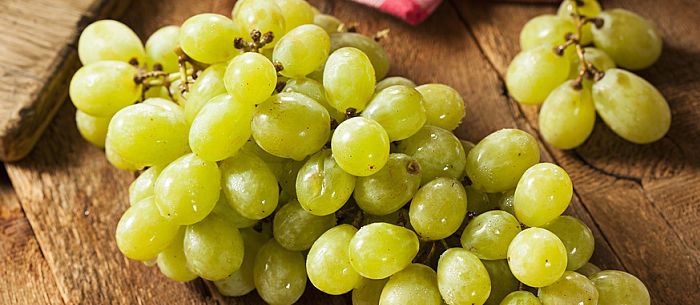Giving in to a begging dog is something almost all dog owners are guilty of. However, whether you’re sneaking something under the table at dinner time, or throwing them bits and pieces while you cook, the human food you give your dog could be having an adverse and potentially dangerous effect.
Find out the 10 most poisonous foods for dogs and make sure you keep them well away from your furry friend!
- Chocolate
Along with caffeine, chocolate contains substances dangerous to dogs called methylxanthines. The darker the chocolate, the higher the methylxanthine content. Symptoms of chocolate ingestion by a dog may include a racing heartbeat, frequent urination and cardiac arrest. Just one ounce of dark chocolate can cause serious health problems in a large dog, so keep it away. - Products Containing Xylitol
Xylitol, an ingredient in sugar-free gums or mints, might be one of the most poisonous foods for dogs out there. It is 100 times more toxic to dogs than chocolate. After eating just one piece of gum containing xylitol, a 4.5kg dog can experience low blood sugar. After just 10 sticks, they can also experience acute liver damage. If you think their breath smells minty, you notice a loss of coordination or they develop seizures, rush your dog to your vet right away for poison treatment. Don’t leave mints or gum in a pocket or bag where your dog might get them. - Onions and Garlic
Onions and garlic contain a substance called thiosulphate, which can damage red blood cells and cause dogs to develop anemia. The good news — once your pup stops eating onions and garlic, they will soon recover from the condition. Make sure to pick up any pieces of chopped onion or minced garlic off of the floor while you cook, and keep onion powder and onion-based soups out of reach. - Alcohol
Alcohol can cause the same drunken reaction in dogs as it can in humans. However, because it takes so little for a dog to become intoxicated, your dog could quickly develop fatal alcohol poisoning. Symptoms include loss of coordination, slowed breathing and frequent urination. If you think that your dog may have found their way into liquor cabinet (or lapped up spilled mouthwash or eaten fermented food), call your vet immediately. Treatment can include medication to inhibit the effects of alcohol. - Avocados
All parts of an avocado plant, including the fruit, contain a substance called persin, which is highly toxic to dogs and can cause acute diarrhoea and vomiting. So, if your dog has ingested a large amount of guacamole, treatment usually involves giving your dog plenty of fluids to keep her hydrated and allowing nature to take its course. If the gastrointestinal distress is severe, call your vet. - Grapes and Raisins
Although the harmful substance in raisins and grapes isn’t known, they are some of the most poisonous foods for dogs: eating just six of these common snacks can cause their kidneys to shut down. If your dog accidentally ingests grapes or raisins, take them to your vet immediately. To keep them out of reach, you could keep grapes in the fridge and raisins on a high shelf in your pantry. - Macadamia Nuts
Unknown toxins in macadamia nuts can damage your dog’s nervous system and can even lead to paralysis. Although you can feed some nuts to your four-legged friend without worry, sometimes bags of mixed nuts contain macadamia nuts. Permanent damage to your dog’s nervous system can occur from macadamia nuts, so to play it safe, you may want to avoid all nuts. - Yeast Dough
The same reaction that happens when bread rises on your kitchen surfaces top can also happen inside your dog’s stomach. The result — severe abdominal pain, cramping, vomiting and diarrhoea. If enough of the bread dough has been ingested, your dog’s intestines could become twisted, which may require emergency surgery. If you love to bake fresh bread, make sure your pup can’t reach it on the surface. - Mouldy Food
You might assume that a little mould wouldn’t bother your dog, but some moulds contain a toxic substance called aflatoxin that can cause tremors, loss of coordination, gastrointestinal problems and even liver damage in dogs. Talk to your vet if you think that your dog has eaten something mouldy. If you wouldn’t eat the mouldy piece of bread, your dog probably shouldn’t either. - Nutmeg
Many people use nutmeg for baking and cooking, but if your dog eats some of the foods you made using nutmeg, it could make them very sick. A toxic substance in nutmeg called myristicin can cause your dog to experience hallucinations, develop seizures, have an increase in heart rate and abdominal pain. Luckily, symptoms usually go away within a couple of days.
If you’re worried about feeding your dog something that could potentially hurt them, it’s always best to just play it safe! Stick with foods designed specifically for canines.
